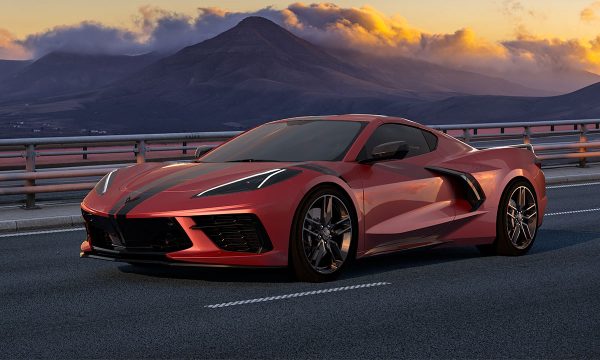Dealers keep watchful eye on OEMs as some attempt to move the goalposts on their relationship status
There is a growing anxiety among dealers throughout the world who are concerned about manufacturers either considering or actively changing the method in which they distribute and sell cars.
Rather than the traditional method of manufacturers providing vehicles to dealers to sell, the new agency model has manufacturers selling directly to consumers. The dealerships receive a flat fee from the sale and are essentially a venue for deliveries and service.
Ian P. Sam Yue Chi, President/Chief Executive Officer of the Corporation des concessionnaires automobiles du Québec (Quebec auto dealers association), said there is definitely concern among dealers because of the uncertainty of what may happen in the future.
“We have to be prudent when we talk about some new kind of distribution model because between an agency model (or another name) there is a world of difference between them,” said Yue Chi.
“There’s a lot of nuances to consider. It’s not about revenue streams, the fact that (a dealership) may lose some control over the relationship with their customers. There’s a lot of nuances between losing everything and losing some part of a dealership agreement.
“I am concerned, but it’s the role of dealer (councils) to make sure that the agreement (between the manufacturer and dealership) makes sense. We want to protect (the dealers), of course, but we have to engage in conversations with the manufacturer. The business model may change, but it’s not always in a negative way. We have to be aware of what are the intentions of the manufacturer.”
The Canadian Automobile Dealers Association recently sent out a position statement to its members on evolving business models, noting that some brands in other jurisdictions want to change how they do business with dealers.
The document has guiding principles that state the CADA will support its dealer members that are “discussing and actively exploring alternative business models” with their respective OEMs that are beneficial to consumers, dealers and manufacturers.
Moreover it stated any discussions regarding potential transformation of existing business models by any OEM must be done in “open and honest communication and good faith consultation with their full dealership body.”
The document also stated the CADA opposes any unilateral action from OEMs that ignore the interests of the dealers and will actively support its members in protecting their rights.
Among the parameters in the document, it is stated OEMs and dealers should collectively explore “sustainable win-win solutions that meet consumer needs.” It also indicated OEMs must concurrently communicate with their full dealer body to ensure full transparency and message consistency. Additionally, the document noted that for any proposed business model transformation, OEMs must prepare five-year business plans to serve as the basis for negotiations and discussions.
“In other jurisdictions around the world, it’s being changed or attempted to be changed,” said CADA President & CEO Tim Reuss. “We thought it would be prudent to put out a statement that outlines guiding principles and parameters that need to be considered by an OEM that’s even remotely thinking of changing something. That is the status we find ourselves in.”
Genesis Motors Canada started a few years ago with the agency concept, displaying cars in malls or small facilities next to Hyundai dealerships. That has transitioned to franchise models in which dealers build brick-and-mortar facilities that they largely pay for themselves with some financial support from Genesis.
There are only a handful of cars in the showrooms for customers to see and test drive. There is also a service centre on the property. The dealerships, which they call distributorships, many of which are built on the same property as Hyundai, earn a commission from Genesis for each sale. There is also a model that has a showroom for cars to be test driven and the service and repairs are done by a Hyundai dealer.
“It is somewhat of a hybrid model in Canada in the sense the inventory is no longer held by the dealer but rather the manufacturer,” said Reuss. “The remuneration is somewhat different from the (true) dealer (model), but the investments are still done by the dealer.”

Don Romano, President & CEO of Hyundai Canada, said the only thing that matters, whether it’s an agency or a franchise, is who owns it. “Fortunately, (Genesis) cars are hot and the dealers make a really good commission on them,” said Romano. “For the most part, it’s very profitable for the (franchise dealers).”
In many states in the U.S., there is specific legislation that prevents manufacturers from engaging in a direct-to-consumer sales process to protect dealers. It is being challenged in some states by Tesla and some of the emerging EV manufacturers.
“It is definitely contentious,” said Steve Greenfield, Founder and Chief Executive Officer of Atlanta-based Automotive Ventures and author of The Future of Automotive Retail.
“It is causing a lot of anxiety and consternation with dealers,” said Greenfield. “Can it be resolved? Sure. Everything can be resolved. From my vantage point, a lot of what the OEMs want to accomplish isn’t going to be able to be accomplished, so time will tell.”
He added the idea of manufacturers taking all the inventory risk and owning the consumer experience including marketing is “a bit utopian and idealistic.”
Stellantis stated in a media release last November it plans to reorganize its European dealer network in July 2023 to cut costs and support its investment in electrification. It stated the agency model would give manufacturers more control of sales transactions, prices and contracts with customers and dealers will exist to help with deliveries and servicing.
Jaguar Land Rover United Kingdom Managing Director Rawdon Glover told CarDealer Magazine last summer it will transition to a direct to customer agency model in the UK by 2024 to improve customer experience.
Mercedes-Benz dealers in Australia are suing the manufacturer over its decision to go the agency route despite their opposition to it.
Ford Motor Company Chief Executive Officer Jim Farley created a bit of a storm last June when he talked of the company restructuring its dealership model, specifically with customers buying EVs from the company.
“There will be some big winners, some people who transition, some who won’t,” said Farley. “Many of the small players cannot afford to make this transition.”
Yue Chi said part of the concern now is there is not a clear understanding from some manufacturers to their dealerships about their intentions.
“We see dealers preoccupied in some brands that are not that communicative with their plans and we see other brands that have been pretty clear that they’re going to preserve the distribution model with dealerships,” said Yue Chi. “It’s different from one brand to another.”
Jean Marc Leclerc, President and CEO of Honda Canada, said agency means different things to different people in terms of how deep it goes into the relationship between the manufacturer and the dealer.
“I can tell you that what we’ve told our dealers is that they are always going to be a part of that process,” said Leclerc. “We believe one of the competitive advantages we have versus those emerging (EV manufacturers such as Rivian, Lucid and others) is going to be the personal touch. It’s not going to get so impersonal from our point of view that it makes sense for the dealer to be eliminated. We’re not even thinking in those terms. We think dealers have a role to play.”
Reuss agreed with that philosophy.
“The dealers for the established manufacturers are the OEM’s biggest asset in the market versus the new entrants into the market such as the Tesla and Lucids of the world,” said Reuss. “Dealers in every community have that personal customer touch and are also the key in the transition to EVs.”
John Kot, Owner of Kot Auto Group in B.C. and who is the former Chairman of Hyundai’s Dealer Council and is currently on the Kia Dealer Council, does not see the relationship changing in Canada between manufacturers and dealers.
“The manufacturers realize they need us as dealers,” said Kot. “We are the ones that are channeling the customers and have to provide all these services.”
When asked if it is a cause for concern that manufacturers may go to an agency model, Kot replied: “I wouldn’t like it, let’s put it that way, because obviously we’d lose control.”
Greenfield said the Venn diagram has overlapped between dealers making so much profit the last two to three years since COVID and Tesla making a lot of profit per car sold that has created a lot of jealousy by OEMs.
“They’ve got consultants helping them understand what changes they can make in the dealer relationship to extract more of the profitability of the car sales,” said Greenfield.
He said what’s happened is “more evolutionary than revolutionary.” He added this is definitely part of the calculus for the OEMs that believe they are competing with “a new wave of upstart automakers” that aren’t shackled by the historical franchise/dealer agreements and are going to be making more margin per car.
“These new EV manufacturers are drafting in behind the good work that Tesla has already done, breaking down these barriers in the last decade,” said Greenfield.












